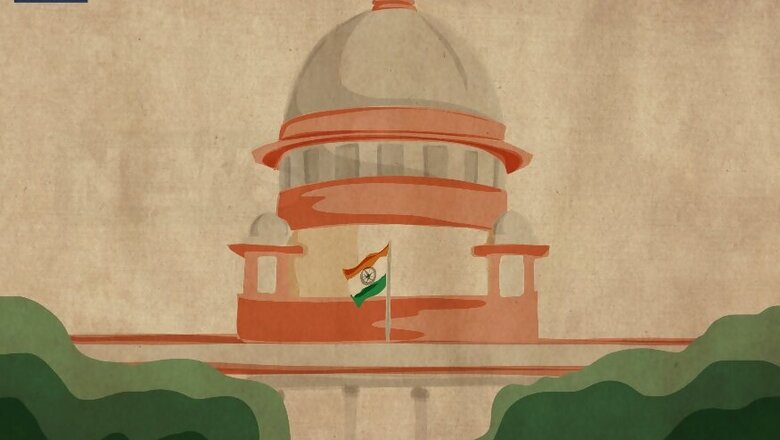
views
New Delhi: The Supreme Court on Friday in a plea hearing will examine the Ministry of Home Affair’s affidavit submitted in response to several petitions challenging the Centre’s notification which allowed 10 central agencies to snoop on people.
The petitions filed by advocate ML Sharma and others claimed that the government's December 20 order stand in violation of privacy laws as it gives them sweeping powers to snoop on people.
The Ministry of Home Affairs (MHA), in their affidavit submitted in response to the petition, stated that the December 20 notification has in fact restricted unlawful and unauthorised surveillance by removing the vagueness and streamlining the procedure of interception under the Information Technology Act.
Justifying the use of powers in the "legitimate State interest", the Central government told the Supreme Court that there are no sweeping powers accorded to the agencies to snoop on people by intercepting their data on computers and phones.
In a further assertion the MHA said that the use of the powers of lawful interception of data is a necessity in the modern world where technology has taken a leap and data is stored and transferred in encrypted forms using several modern tools of information communication.
It maintained that identifying and authorising 10 agencies, including CBI, ED, NIA, IB and RAW, was under the permissible powers of the IT Act and the December notification was taken out not only to streamline the process of lawful interception but also to restrict the use of Section 69 of the Act, confining it to the cases of legitimate State interest.
The affidavit also listed out four purposes of the new notification, including interception only through the due process of law by the authorised agencies and ensuring that the right to privacy of individuals is not violated by illegal snooping.
The MHA submitted that every order of interception will require the prior approval of a competent authority i.e. the Union Home Secretary and the cases shall be restricted strictly to the public purposes sanctioned under the IT Act.
Apart from this, the affidavit added, cases of interception shall be placed before a review committee to provide for an additional safeguard against improper use of the powers.
"There is no blanket permission to any agency for interception or monitoring or decryption as the authorised agencies still require permission of the competent authority in each case as per due process of law and justification for interception," read the affidavit.
It pointed out that the standard operating procedure (SOP) and the rules further laid down that permission of interception shall be given only when information cannot be obtained by other tools and methods.
The rules also mandate the destruction of intercepted records every six months unless otherwise required for a functional requirement or in a court of law, the MHA added.
On the right to privacy, the government said that it acknowledged privacy as a very important right but the "veil of privacy can be lifted for legitimate State interest". The affidavit stated that there are enough safeguards under the Act and the rules to ward off unwarranted invasion into the privacy of people.
In addition to this, the government cited threats to the country of terrorism, radicalisation, cyber-crime, drug cartels, and reinstated that a strong and robust mechanism for the timely and speedy collection of actionable intelligence, including signal intelligence, is imperative to counter threats to national security.




















Comments
0 comment